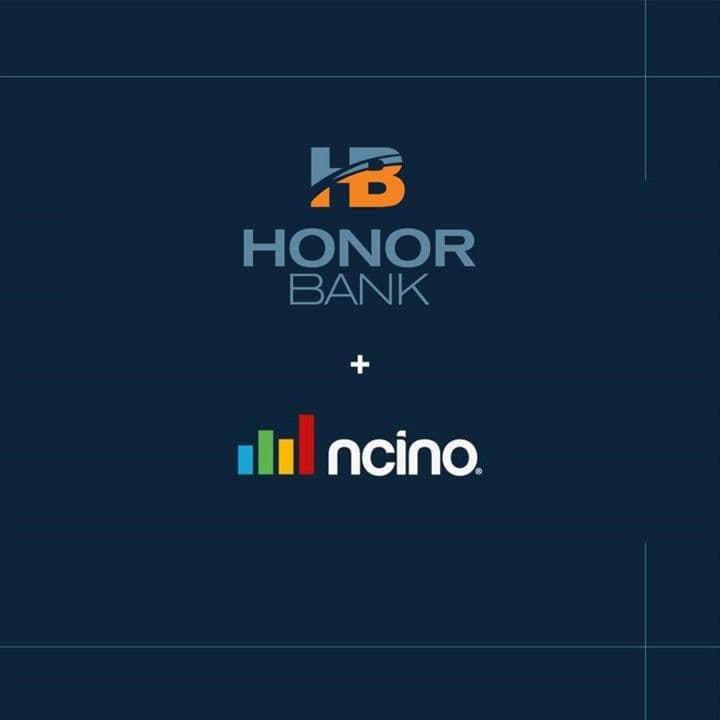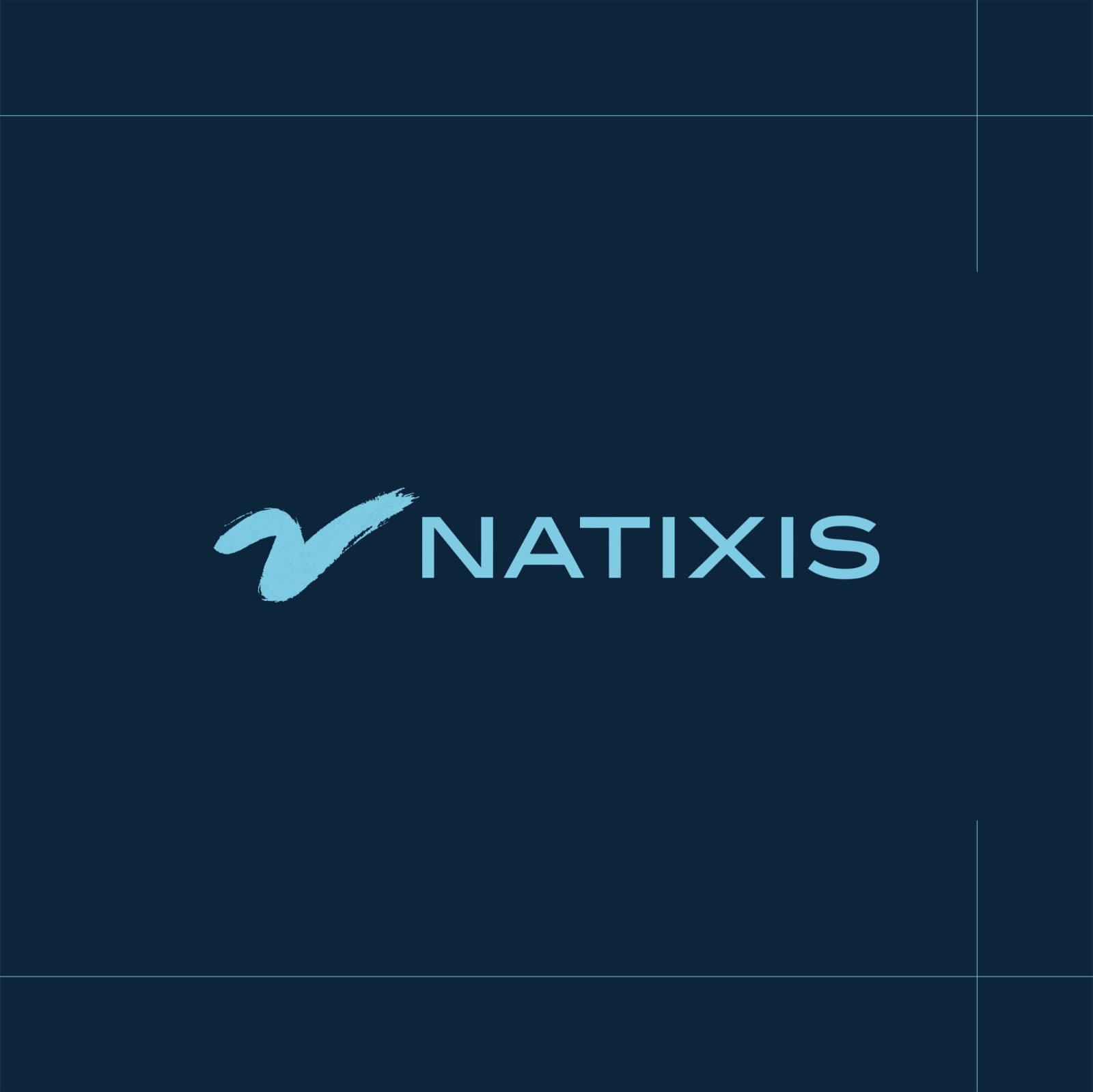The building society sector continues to demonstrate remarkable resilience and momentum, accounting for 72% of mortgage market growth between April and September 2024.

The building society sector continues to demonstrate remarkable resilience and momentum, accounting for 72% of mortgage market growth between April and September 2024.

As community banks and credit unions navigate a constantly evolving financial landscape, a few challenges become clear. From delivering modern member experiences to understanding the role of legacy systems in a digital world, it’s crucial that community banks and credit unions find solutions that best serve their borrowers.

To buy or to build? That’s the debate in today’s evolving landscape.

In today’s financial landscape, digital transformation has become an essential priority for financial institutions (FIs), and credit risk management is no exception. Despite economic challenges, many banks are making significant investments in advanced technologies to fast-track their digital transformation. While cost pressures are considerable, the potential of technology to enhance automation and efficiency continues to drive these investments forward.

Artificial intelligence (AI) and machine learning (ML) are transforming how financial institutions approach many traditional banking processes. When it comes to AI in the financial services industry, the concept of explainability—i.e., the ability to clearly communicate the process behind AI’s decision-making and understand the model’s inner workings—is of the utmost importance.

Being a leader in the financial services industry requires a seamless approach to innovation and efficiency. One of the crucial elements to success is the integration of automation and augmentation into credit portfolio management, as these tools have the ability to transform operations, manage risk, and improve both banker and client experiences.

The mortgage industry has seen some significant changes in recent years with the introduction of digital technology solutions. Organizations are increasingly turning to technology for avenues of competitive advantage, leading many companies into a state of flux as they adjust their business model and digital mortgage strategies to create and maintain profitability with long-term success.

In Australia’s ever-evolving financial landscape, customer-owned banks are embracing technology to redefine their business operations and enhance customer experiences. Summerland Bank and P&N Group are two banks leading this charge, partnering with nCino to drive digital transformation, streamline operations, and enhance customer service.

In the rapidly evolving lending landscape, caused in part by the bank failures of 2023, credit portfolios are facing significant stress and heightened challenges, including rising default rates, fluctuating interest rates, and economic uncertainty. Coupled with strict regulatory demands for risk differentiation and portfolio diversification, these pressures are exposing the limitations of current credit portfolio monitoring processes, which are often static, reactive and subjective. As a result, financial institution (FI) leaders are rethinking their credit portfolio management practices.

Artificial intelligence (AI) and machine learning (ML) are transforming how financial institutions approach credit decisions and traditional banking processes. By incorporating AI into the credit decisioning process, financial institutions can help create a more inclusive, intuitive, and impactful financial services landscape.

With the rapid evolution of technology and increasing regulatory demands, financial institutions (FIs) face the dual task of enhancing operational efficiency while mitigating risks.

In the rapidly evolving lending landscape, caused in part by the bank failures of 2023, credit portfolios are facing significant stress and heightened challenges, including rising default rates, fluctuating interest rates, and economic uncertainty. Coupled with strict regulatory demands for risk differentiation and portfolio diversification, these pressures are exposing the limitations of current credit portfolio monitoring processes, which are often static, reactive and subjective. The Australian CRE market has seen an 8.5% decline in capital growth with the office sector being a major contributor to this decline due to its cumulative loss of 22%. As a result, financial institution (FI) leaders are rethinking their credit portfolio management practices.

After 20 years in business, Tradition Capital Bank has taken the initiative to improve their technology stack, establishing a best-in-breed strategy. nCino Commercial Onboarding and Account Opening was selected as their first digital solution to bring an exceptional commercial account opening experience.

In the dynamic world of financial services, Artificial Intelligence (AI) stands at the forefront of a revolution, unlocking unprecedented value for financial institutions. This technology, characterized by its ability to learn and adapt, is not merely an addition to the toolkit of the financial sector; it's a game-changer. By harnessing AI, financial institutions (FIs) are enhancing decision-making processes, optimizing operational efficiencies, and delivering highly personalized customer experiences.

Community banks and credit unions play a huge role in the communities they serve. Unlike their larger counterparts, these institutions provide loans in the neighborhoods where their customers live and work, positively impacting local businesses and communities.

How do you choose when to buy a solution and when to build your own in house?

Founded in 1953 on the value of “People Helping People”, South Bay Credit Union serves the South Bay community of Los Angeles County. For over 65 years, the South Bay Credit Union mission has been to assist the members of its tight-knit, intensely loyal community in their financial lives, not to make a profit.

Thanks to the advances in artificial intelligence (AI) and machine learning, the future of the lending industry is undergoing a major transformation. AI is enabling lenders and financial institutions to automate processes, reduce costs, improve customer experience, and manage risks more effectively. AI can also help lenders offer more personalized and tailored products and services to their customers, based on their preferences, behavior, and creditworthiness.

In October, nCino hosted three highly impactful forums in Scottsdale, Arizona. These forums included the Community and Regional Executive Forum, the North America Enterprise Executive Forum, and the Farm Credit Forum.

In the current economic climate, mortgage and real estate professionals are facing significant challenges. Rising interest rates, low inventory and high loan production expenses are impacting the market, leading to a decrease in refinancing volume.Amid this increased competition, there’s a pressing need for lenders to build and maintain strong relationships with real estate agents to bolster their referral base. That’s why a referral strategy that helps you leverage existing relationships and build new ones is so crucial.

In our rapidly evolving mortgage industry, eClosings are becoming increasingly popular due to their ability to provide a seamless, efficient and cost-effective solution for lenders, settlement agents and borrowers. In nCino’s recent white paper, we dive deep into the concept of eClosings, their benefits and how to best select an eClose solution.Digital Transformation: How eClosing is Shaping the Mortgage IndustryThe days of lengthy, paper-based mortgage closings are giving way to the digital age. More and more, we’re seeing a shift towards digital closings, which are rightfully earning a reputation as the “gold standard” in the mortgage industry.Why are borrowers and lenders flocking towards this technology-driven solution? Their simplicity, efficiency and the capacity to meet evolving consumer demands are key benefits for lenders, while borrowers are particularly charmed by quicker closings and the convenience of a completely digital mortgage experience.Beyond their appeal to borrowers, eClose solutions yield remarkable benefits for lenders and settlement agents. From a cost perspective, significant savings per loan are realized when leveraging this digital space. The reduction of human error, improved loan quality and reduced processing/funding cycles make eClosings all the more lucrative for these stakeholders.

Honor, MI and Wilmington, N.C. -- October 10, 2023 -- nCino, Inc. (NASDAQ: NCNO), a pioneer in cloud banking for the global financial services industry, today announced that Honor Bank, a full-service community bank in Northern Michigan, is live on the nCino Cloud Banking Platform. The Bank implemented nCino's Commercial Banking Solution in just six months. Honor Bank's dedication to its customers is at the forefront of this initiative, and the Bank is committed to leveraging the most advanced tools and technologies to deliver superior, efficient banking solutions. Honor Bank recognized an opportunity to modernize its technology stack and utilize a more modern solution that would connect the institution through a unified and customer-centric single platform. By adhering to nCino’s Gold Standards, a best practice guide for implementations, the Bank was able to go live on nCino’s Commercial Banking Solution on an accelerated timeline. With nCino, Honor Bank is streamlining operations and enhancing the customer experience while strengthening its competitive edge regionally.

nCino enhances efficiency to support growth ambitions while helping ensure data security at the Tokyo-based financial institution.

How nCino’s Partner Ecosystem is Powering the Future of Financial ServicesAs financial institutions (FIs) continue to adapt and evolve in an ever-changing world, the demand for pioneering, secure and streamlined technological solutions to help manage banking processes has grown. This is where nCino comes in. Our innovative cloud banking platform not only streamlines customer and employee interactions, it also drives increased efficiency transparency, profitability and regulatory compliance thanks in part to strategic collaborations with our System Integration (SI) Partners and our Technology (Tech) Partners.

Applying for a mortgage can be a daunting experience. From collecting and organizing paperwork to completing lengthy application forms, the process can be time-consuming, stressful, and prone to errors. With the help of the right digital mortgage experience and a point-of-sale (POS) solution, however, the mortgage application process can be streamlined and simplified for the customer or member, real estate professional, loan officer, title and settlement partner.Keep reading to learn five reasons innovative financial institutions are choosing a digital mortgage solution with a built-in point-of-sale solution to modernize the home lending experience:Power lending experiences with a user-friendly interface.One of the biggest advantages of a digital mortgage experience combined with a point-of-sale solution is the user-friendly interface. With one login, each stage of the mortgage transaction is streamlined across all stages of the journey. The right solution simplifies application processes and provides customers with a simple, easy-to-navigate workflow that guides them through the application process step-by-step. It also empowers real estate agents and lenders to provide pre-approval letters at their office, or more conveniently through a mobile device. This ensures customers provide all the necessary information and reach key milestones, and it makes the application process less intimidating and more accessible. The right solution must also make the experience just as simple and seamless for customers that prefer to work directly with their loan officer. With a native mobile experience, customers can apply for a mortgage, receive approval, and close on their home, all from the convenience of a mobile device.

Of the four challenger banking licenses granted by Australian regulators in 2019, only one is still standing – and the Financial Times says it’s growing faster than any other financial institution in Asia-Pacific. At nSight 2023, Judo Bank COO, Lisa Frazier, shared what differentiates Judo Bank and how nCino has been a foundational part of its journey.

In this white paper, experts from nCino and PwC explore five common mistakes that firms make when attempting a digital transformation project, and offer best practices drawn from their experience in deploying hundreds of new platforms on behalf of clients across multiple geographic regions.With regulatory headwinds picking up, interest rates still rising and borrower expectations changing, the macroeconomic outlook for UK homebuyers and mortgage lenders alike is daunting.This is why many UK mortgage lenders are intent on disrupting the market by serving their clients throughout the entire homeownership journey, from applying for a loan to refinancing their home. To achieve this goal of capturing more of the home buying journey and growing direct lending market share, mortgage lenders will need to provide borrowers with seamless and efficient mortgage experiences. During a time when it is more important than ever to identify and act on operational efficiencies and areas for cost savings, lenders can no longer afford to ignore their legacy technologies and antiquated processes.

South African commercial property specialty lender selects nCino’s cloud banking platform to grow business and improve access to finance for property entrepreneurs in affordable housing.

The partnership between the two firms builds on global implementation experience to help expand and accelerate the use of the nCino cloud banking platform across corporate and commercial lenders in Spain.

Amazement. Excitement. Controversy. Fear.By now, you’ve probably heard of ChatGPT, the revolutionary artificial intelligence (AI) technology that has stunned the world in 2023. Perhaps you’ve even tried out the free version of this powerful tool to draft an email to your boss or write a poem about your pet.As exciting as generative AI applications like ChatGPT are, they’ve also triggered fear and uncertainty across many spheres, from education, where many school districts have banned students from using AI to write their term papers, to the financial services industry, where major banks like JPMorgan Chase, Bank of America and Wells Fargo have prohibited their employees from using AI for corporate communications, citing compliance concerns. Meanwhile, other financial institutions, such as Goldman Sachs, are experimenting with generative AI tools internally to help write and test code, which has some developers worried about their roles.While conversational AI tools like ChatGPT, Jasper and Google Bard have suddenly captured the public’s imagination, the underlying technology is not new. And it’s certainly not the only—or best—use case for generative AI in banking.

AmeriCU, a New York-based credit union, will implement SimpleNexus' Nexus Engagement™, Nexus Origination™ and Nexus Closing™ to modernize the member home buying experience. These solutions will provide members with a seamless, mobile-first experience and enable AmeriCU to streamline its workflows and improve operational efficiency.

Idaho Central Credit Union (ICCU) has a growing, wide-spread customer base with diverse needs. That’s just one reason the ICCU has partnered with nCino across multiple lines of business—and why they knew nCino would be able to help them transform their business lending processes.

With the anticipation of a global downturn, a number of banking and technology trends are emerging worldwide. As a result, financial institutions will have to innovate faster than ever to avoid falling behind competitors and ensure they’re positioned to take full advantage of new opportunities today and throughout 2023.

As financial institutions (FIs) face the current macroeconomic landscape and an impending global recession, they are beginning to feel the impact on their budgets. As a result, many banks are redirecting their spend towards projects with faster time to value that improve operational efficiency and help control costs.For lenders, this also means navigating increased risk and higher chances of loan defaults, not to mention new competition threatening their market share, all while continuing to create personalized experiences, winning customers, mitigating risk and managing compliance. That’s no easy feat.

Choosing the right digital mortgage vendor can feel daunting. Mortgage lenders must consider not only their own business needs, but also federal regulations that impact how they manage and access their borrowers’ data. In an increasingly tech-heavy mortgage environment, lenders are navigating new digital solutions to fix old problems.

With 2023 underway, savvy lenders are looking for mortgage tech that will help them navigate the economic headwinds this year is slated to bring. Efficiency, cost savings, and better collaboration are top of mind for many lenders. But which part of the mortgage journey can they digitize?

Forrester’s Vision: Measure Digital Success and Drive Profitable Growth report introduces Forrester’s digital measurement framework and shows financial institutions how to properly define the right metrics to track and improve the success of their digital efforts.

Germany’s “Best Performing Bank” completes successful implementation of the nCino platform to drive further efficiency.

New Zealand’s leading business bank selects nCino cloud-based platform to exceed customers’ growing expectations.

If you’ve ever renovated your home, you know it can be a difficult process. Eating dinner in your garage for six months isn’t exactly a picnic, but the end result—a beautiful new kitchen where you’ll create meals and memories for years to come—makes the journey worthwhile.Implementing a new software solution at your financial institution can be a difficult process, too. While there probably isn’t a five-star meal at the end of your journey, there is the promise of faster processes, enhanced operational efficiencies and stronger relationships with customers.The implementation of technology sets the tone for an organization’s digital transformation, so it’s important to have great tools to use along the way. You can’t renovate with a can opener in the same way that you can’t implement a new software with outdated or irrelevant processes. nCino is a partner who has the right tools to help you achieve your goals, along with the long-term vision and experience your institution needs to succeed.When undertaking a project, whether it’s a home renovation or a software implementation, a trusted partner is key. At nCino, we can’t help you with your kitchen, but we know a thing or two about software. Below are five tips to help ensure a successful implementation journey.

Arrow Financial Corporation’s goal is to meet customers wherever they want to be met. In order to make this possible, the Bank has implemented multiple nCino solutions, offering digitalexperiences to their customers while maintaining the strong human-to-human relationships that are vital to the Arrow culture.

At nCino, our customers are our top priority. We improve each day by listening to their feedback and continuously innovating on their behalf. In mid-October, we invited more than sixty banking leaders and executives to The NoMad London to network with one other and with nCino leaders, learn about our recent product advances, and provide valuable input on our future roadmap.For those who couldn’t attend in person, we’ve collected some of the exciting highlights and key takeaways from this incredible event.

As economic conditions grow more volatile, financial institutions (FIs) are all wondering the same thing: how can we build resilience and maintain or grow a competitive position in these uncertain times?In many cases, this debate centers around where to reduce spending or which projects can be put on hold as efforts and priorities are reshaped. However, seeking savings by cutting or pausing digital transformation projects can do more harm than good.

Allied Irish Banks, or AIB, is a financial services group based in Ireland whose core services are Retail, Business and Corporate Banking. As one of the largest financial institutions in Ireland, the Bank serves its 2.8 million customers at over 200 branches throughout the country.

Partnership will support real estate lender with fast decision making and flexible credit offerings via a cloud-based platform.

The market is constantly changing as customer needs evolve and technology advances. As financial institutions adapt to keep up with those changes, the need for a seamless, digital experience grows, too.For most institutions, transforming your infrastructure takes time and hard work. That’s why it’s so important to know where your institution currently is and where you hope to be as your digital transformation strategy evolves. This kind of early preparation can help you navigate the challenges of a transformation and improve your chances of long-term success.

Japanese bank teams up with nCino and IBM to enhance business financing.

In September, the nCino UK Mortgage team ran a workshop with 40 delegates at the MoneyLive Building Societies event on the topic of digitising mortgage journeys and the solutions technology offers.

The COVID-19 pandemic highlighted previously unaddressed issues in the mortgage landscape and put pressure on lenders to quickly update their systems to meet the challenge.More recently, in response to interest rate uncertainty we’ve seen record amounts of mortgage products being removed from the market in the UK, more than during the pandemic. Digital transformation is no longer a ‘nice to have’, but a necessity to better respond to changes in demand and adapt to an evolving market. With many lenders now looking to, or having already started to, digitally transform their lending operations, it’s time to discuss the ways in which they can de-risk the re-platforming process.“The current climate proves once again why lenders need to ensure they have built in agility across core technology stacks to facilitate rapid responses to market changes,” said Will Stevns, Partner, Customer Led Transformation in Banking, PwC.

Agricultural lenders face unique challenges, and their customers have specific needs. That’s why institutions like Agricultural Financial Services Corporation (AFSC) are partnering with nCino to meet these challenges with technology that is transforming the agricultural lending industry.

Rabobank Australia and New Zealand has partnered with nCino to implement its Bank Operating System. This will help RANZ to automate its financial spreading analysis, improve the speed and quality of credit decisions, and free up employees' time to focus on strengthening customer relationships.

Emprise Bank serves 20 communities with 33 branch and commercial offices across the state of Kansas. The Bank prides itself on having an innovative culture driven by technology and a mission to provide the best experience for their customers.As the Bank grew over the past decade, its legacy loan operating systems couldn’t keep up. As a result, they were no longer able to offer their customers the experience, speed and service they needed and deserved.
Top three New Zealand institution by asset size is live on nCino following implementation journey during pandemic.

South African bank’s adoption of nCino expands the company’s reach to five continents.

Financial services leader selects nCino to streamline origination, underwriting and portfolio management within its Small Business Banking Business

Natixis CIB is partnering with nCino to streamline and automate several legacy processes. With solutions like Automated Spreading, nCino IQ (nIQ) and the Corporate Banking Solution, Natixis CIB will strengthen competitiveness and provide enhanced services to its clients.

The COVID-19 pandemic became a catalyst for the digital transformation of financial institutions worldwide, making technologies such as the cloud and artificial intelligence (AI) essential components for business and success.
The COVID-19 pandemic has permanently reshaped many industries, including financial services. Financial institutions around the globe have responded to these changes by becoming more proactive, adaptive and innovative, resulting in new industry trends. Wondering what to expect in 2022? We surveyed executives in the financial services industry and identified the top four commercial banking trends for 2022.
TORONTO – January 12, 2022 – nCino, Inc. (NASDAQ: NCNO), a pioneer in cloud banking and digital transformation solutions for the global financial services industry, today announced that CIBC, one of Canada’s Big Six banks, has selected the nCino Bank Operating System® to provide CIBC’s Business Banking team with a modern, scalable and flexible platform to enhance the experience for its Canadian business clients.Leveraging nCino’s solution, CIBC will be able to improve both the client and employee experience by streamlining complex processes through digitizing and automating the client journey, allowing for a faster, more efficient and more transparent experience for business owners."Financial institutions are being challenged to redesign and tailor an experience that best fits their client base. We believe the nCino platform will enable CIBC to better meet the needs of their business banking clients, while also providing a modern technology experience for their employees,” said Pierre Naudé, CEO at nCino. “We are thrilled to be working with CIBC and look forward to modernizing the banking experience for Canadian business owners.”

Recognise Bank, one of the UK’s newest SME banks, sought a digital end-to-end loan origination system that would allow them to maintain face-to-face contact and relationship management between small businesses and their financial services providers, while delivering best-in-class digital banking capabilities. In this customer story, discover how Recognise successfully implemented nCino to honor traditional SME banking values, while also increasing efficiency and scalability across a single, digital, cloud-based platform.

New Australian SME Lender completes accelerated delivery of nCino’s cloud-based platform MELBOURNE, Australia and WILMINGTON, N.C., Sept. 07, 2021 (GLOBE NEWSWIRE) — nCino, Inc. (NASDAQ: NCNO), a pioneer in cloud banking and digital transformation solutions for the global financial services industry, today announced that TruePillars, a specialist SME lending company headquartered in Melbourne, Australia, is live on the nCino Bank Operating System®. TruePillars selected KPMG Australia as their delivery partner, who in conjunction with the nCino team in Australia, were able to transform the TruePillars’ lending process rapidly and get their users live on the nCino platform in only 12 weeks.
“As a start-up in the Australian financial services ecosystem, we knew we needed partners who could get us up and running quickly, who were flexible and who understood our business,” said John Baini, Co-Founder and CEO of TruePillars. “nCino and KPMG exceeded our expectations at every turn, from kick-off to go-live. ”

Before embarking on their digital transformation journey, WaFd Bank was a lean operation, providing few services but executing them well.
Before implementing nCino, Platinum Bank, a community bank based in the Midwest, was using paper-based processes that required manual tasks. Like many of their competitors, the Bank was looking for a cloud-based solution that would help it gain efficiency, increase transparency and offer its employees and clients a seamless digital experience.Platinum Bank went live on the nCino platform in just under six months, partnering with nCino on an accelerated delivery for incredibly fast implementation, despite additional challenges caused by the COVID-19 pandemic. With new efficiencies and automations to transform commercial lending, the Bank is now able to spend more time in business development and serving existing clients, all while delivering faster credit decisions. Powered by nCino, Platinum Bank can also grow its business loan portfolio more effectively and competitively by identifying bottlenecks in its sales processes.
Michael Rennie, Chief Digital Officer at Cynergy Bank, knew it was time for the bank to undergo a digital transformation before the COVID-19 pandemic became an influence. He identified the need to replace outdated technology to accommodate changing customer expectations, increase efficiencies and accelerate growth within the competitive financial services industry. He also wanted a product that would allow the bank to pivot quickly when necessary and offer new products and services to its borrowers.
Deploying an end-to-end commercial loan origination system (CLOS) is complex and provides many opportunities for missteps. Understanding the most common pitfalls that can happen during the implementation is the best way to steer clear of costly mistakes.
The decision to evaluate and implement a commercial loan origination system (CLOS) is a big one for a financial institution, giving it the opportunity to leapfrog the competition and truly transform its commercial lending processes for its borrowers and employees. Careful planning and execution are key components of every successful CLOS evaluation, selection and implementation.
Cloud adoption is now a necessity for financial institutions seeking enhanced services, requiring changes in work culture, system integration and regulatory compliance. As the financial landscape evolves into distinct segments, executing effective digital strategies is crucial for long-term success, positioning institutions to prosper in the new age of banking.
WILMINGTON, N.C., July 30, 2019 /PRNewswire/ — nCino, the worldwide leader in cloud banking, today announced that Columbia Bank is live on the nCino Cloud Banking Platform. Columbia’s move to the cloud and utilization of nCino’s market-leading banking platform is providing its employees and customers with a new generation of technology that delivers the right information and digital channels to enable a consistent and convenient banking experience.Thomas J. Kemly, President and CEO of Columbia Bank said, “We are in an industry where your competition is no longer just the bank down the street, but rather technology and analytic-driven entities. Partnerships with the right technology providers that deliver not only an improved customer experience, but access to the data required to make confident and timely decisions are increasingly important. For Columbia Bank, nCino was the obvious and clear choice.”

WILMINGTON, N.C., June 20, 2019 /PRNewswire/ — nCino, the worldwide leader in cloud banking, today announced that $1.5 billion-asset, Ohio-based Westfield Bank has selected nCino’s Cloud Banking Platform to automate and streamline its banking processes and provide customers and employees with a seamless end-to-end experience.

WILMINGTON, N.C., May 7, 2019 /PRNewswire/ — nCino, the worldwide leader in cloud banking, today announced that $7.2 billion-asset S&T Bank has adopted the nCino Cloud Banking Platform to replace numerous disparate systems and manual processes in favor of a single, end-to-end solution that spans the Bank’s credit-related platforms across multiple lines of business.“We were looking for a technology solution that could support all of our commercial, business and consumer banking processes on one, end-to-end platform,” said Patrick Haberfield, senior executive vice president and chief credit officer at S&T Bank. “We spent the better part of a year going through the vetting process and narrowing down the prospects. Through that process, it became apparent that nCino was the only platform that offered everything we were looking for. With the potential to implement additional nCino solutions down the line, the flexibility of the platform will continue to support our vision as we grow.”

WILMINGTON, N.C., March 19, 2019 /PRNewswire/ — nCino, the worldwide leader in cloud banking, today announced that St. Louis Bank will utilize its Cloud Banking Platform to replace manual, disparate processes, boost operational efficiency and enable faster responses for an improved customer experience.When St. Louis Bank concluded that manual processes within its loan cycle had become a barrier to delivering on customers’ rising expectations, they sought a technology solution that could quickly replace paper-based processes with automated workflows. While the Bank’s initial priorities also included gaining accurate, real-time visibility into its loan pipeline and simplifying portfolio management and compliance efforts, they also wanted a scalable solution with the inherent flexibility to support its long-term strategies and future growth.

WILMINGTON, N.C., Feb. 7, 2019 /PRNewswire/ — nCino, the worldwide leader in cloud banking, announced today that Louisiana-based Investar Bank has adopted the nCino Cloud Banking Platform to streamline back office functions and help the Bank deliver a brilliant banking experience to its customers.After a six-year growth period, during which time Investar Bank’s total asset size grew from $635 million to $1.8 billion, the Bank recognized the need for a scalable technology solution to replace manual-based workflows and disparate systems in order to better support future growth. Investar Bank selected nCino to help drive efficiencies and customer centricity across its core business consisting of small business and commercial clients.
